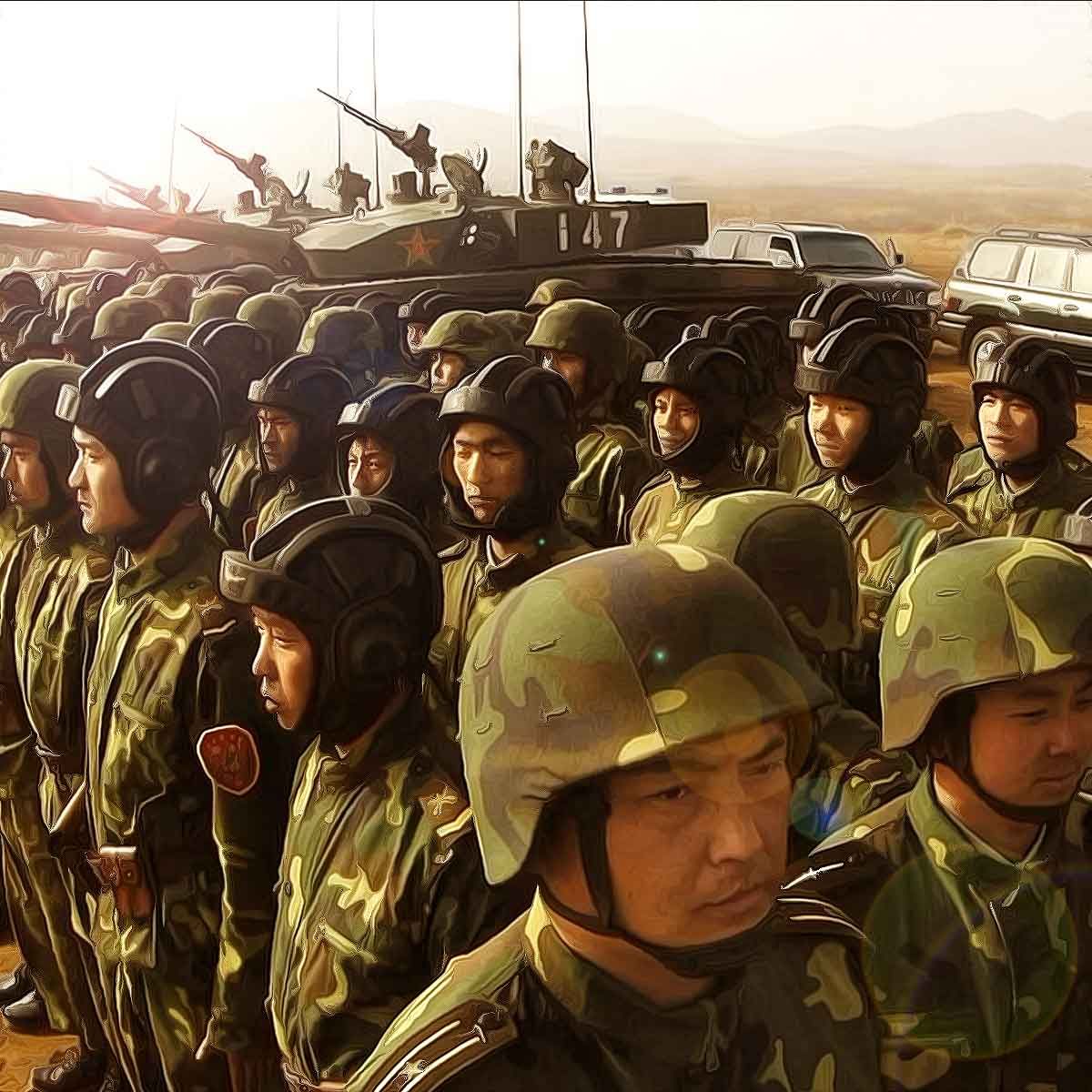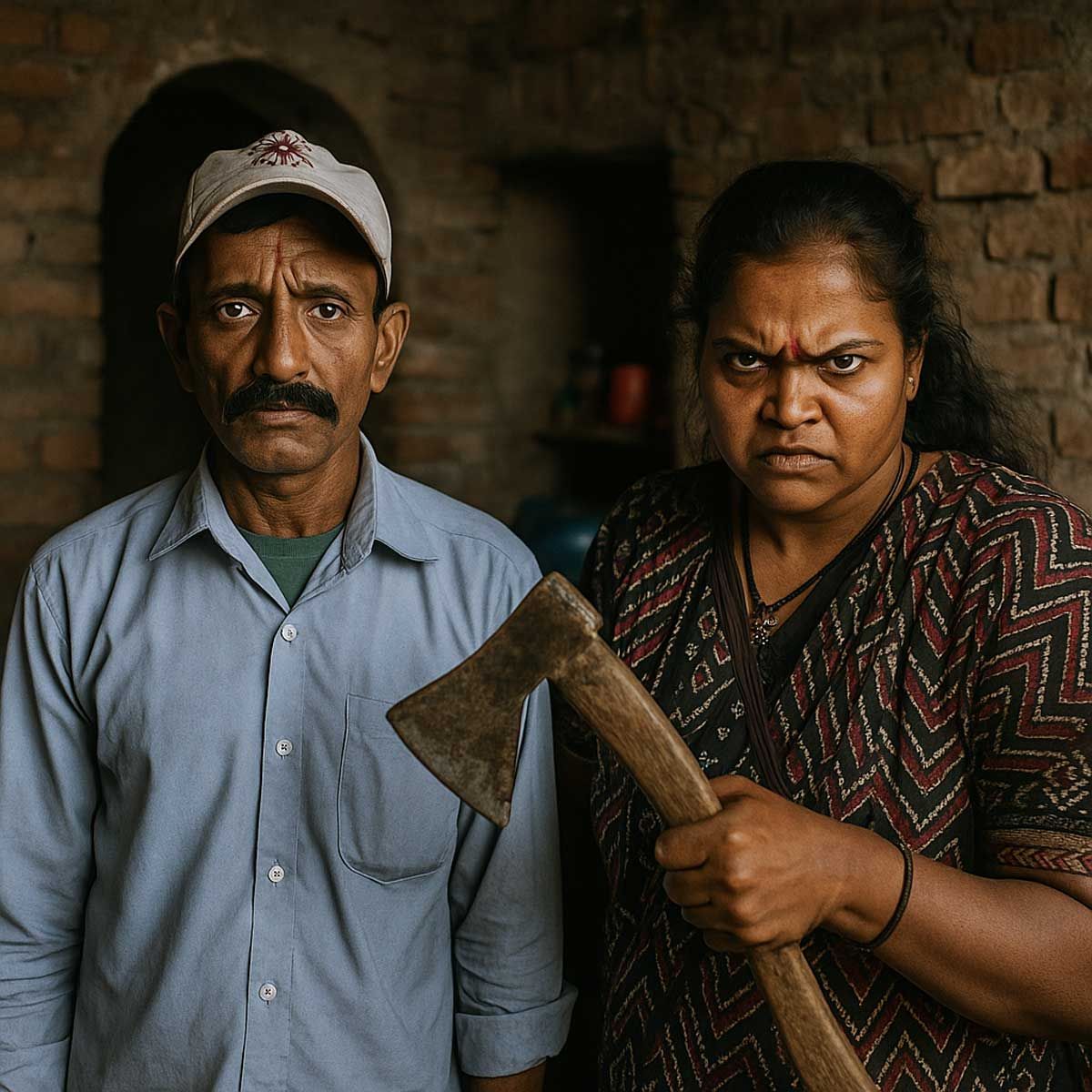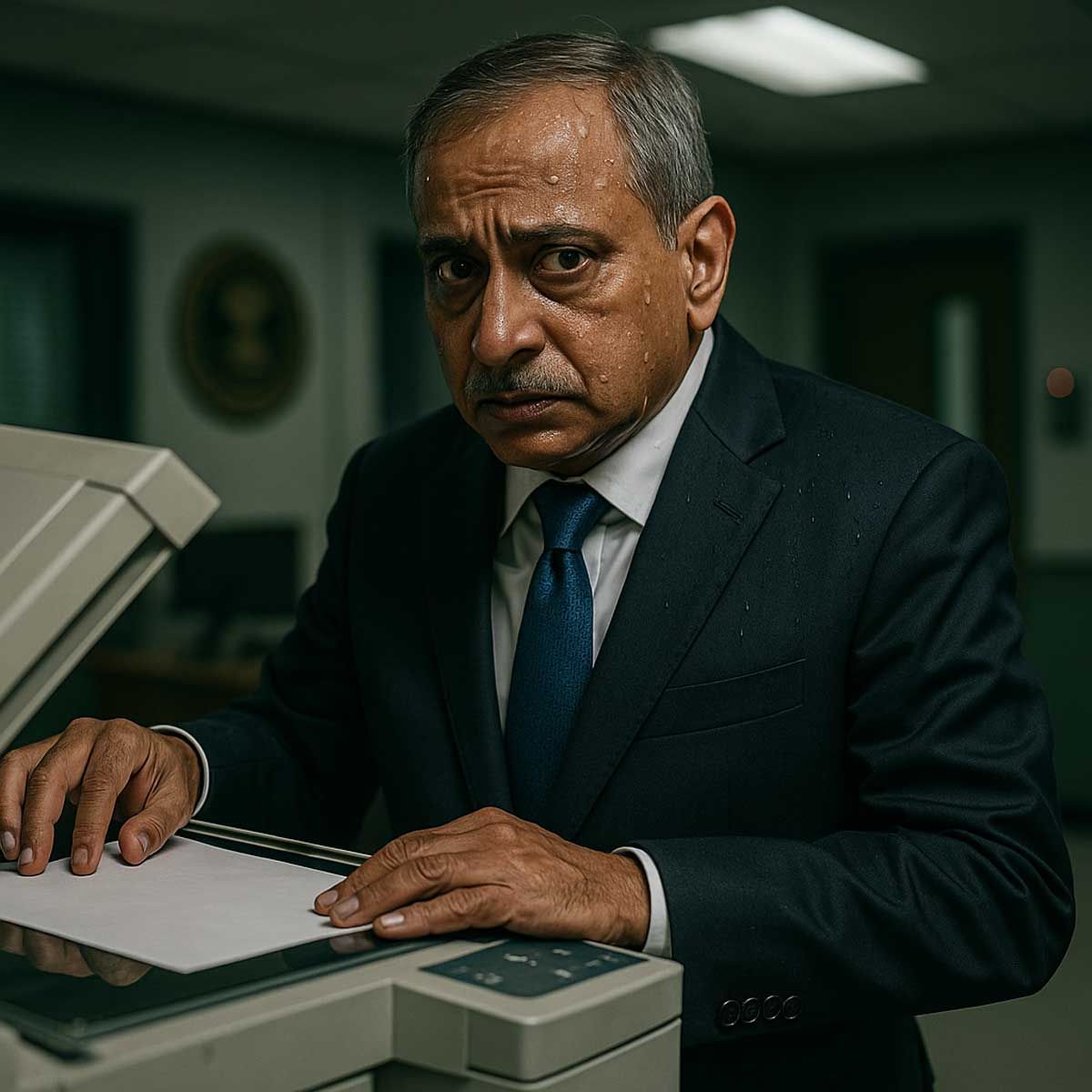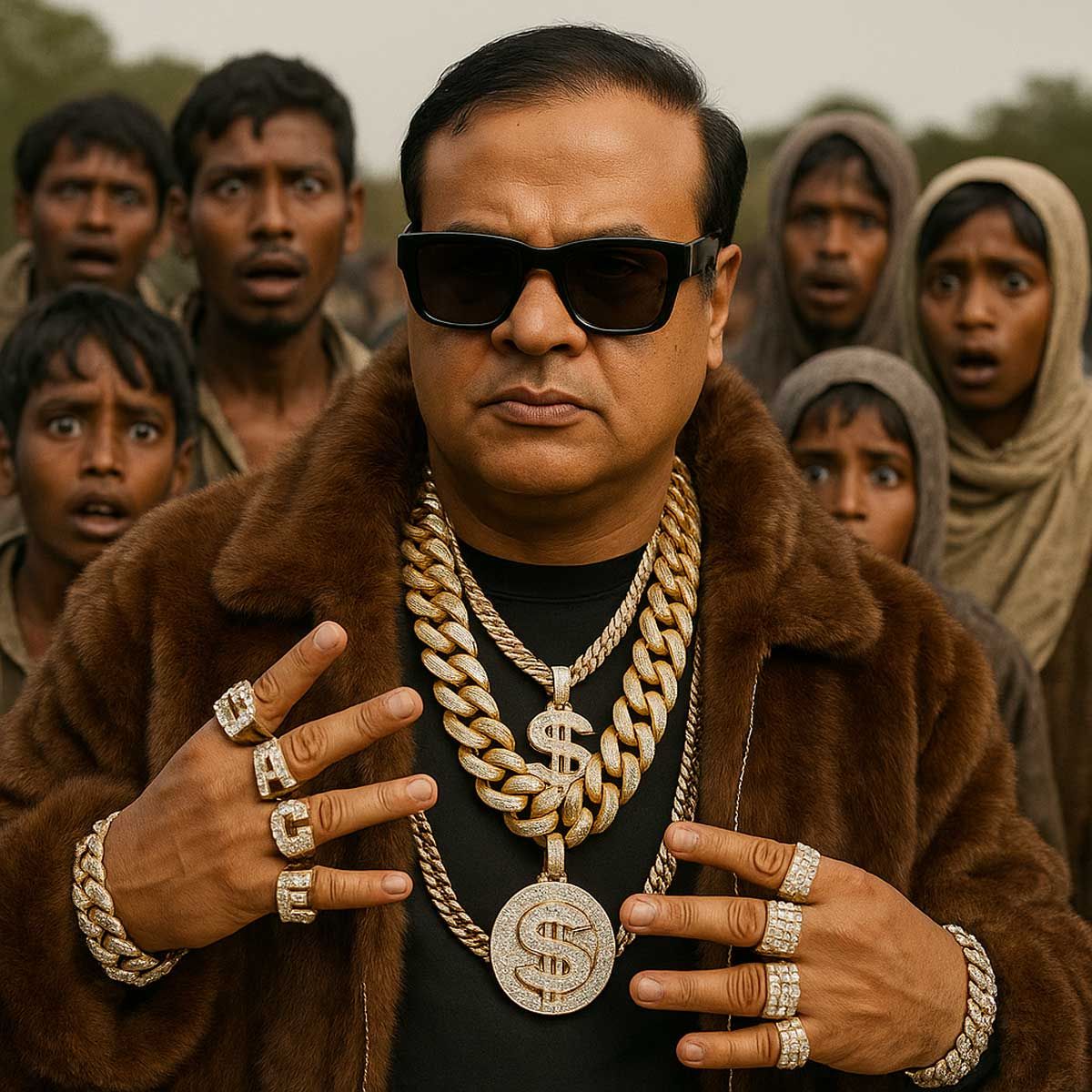More Coverage
Twitter Coverage
Satyaagrah
Written on
Satyaagrah
Written on
Satyaagrah
Written on
Satyaagrah
Written on
Satyaagrah
Written on
JOIN SATYAAGRAH SOCIAL MEDIA
"If they want peace, nations should avoid the pin-pricks that precede cannon shots": Indian and Chinese troops began disengaging in a coordinated and planned way at Patrolling Pillar (15) in the Gogra-Hotspring region of Eastern Ladakh to maintain peace

Indian and Chinese troops have begun disengaging at Patrolling Pillar (15) in the Gogra-Hotspring region of Eastern Ladakh, the government said. Forces of the two countries have been locked in a confrontational position in the area since April 2020.
|
“On 8th September 2022, according to the consensus reached in the 16th round of India China Corps Commander Level Meeting, the Indian and Chinese troops in the area of Gogra-Hotsprings (PP-15) have begun to disengage in a coordinated and planned way, which is conducive to the peace and tranquility in the border areas,” a ‘Joint Statement’ issued by the Ministry of Defence said.
The 16th Corps Commander Level talks were held on July 17 this year at the Chushul-Moldo border meeting point on the Indian side. With disengagement at PP 15, forces of the two countries have disengaged at all friction points in the region which included the North and South banks of the Pangong Tso, PP 14, PP 15, and PP 17A. However, other contentious issues related to the boundary still remain between the two countries, and Chinese forces have still blocked access to traditional patrolling areas of Indian forces on the Line of Actual Control (LAC) in the Depsang Plains and Charding Nala regions. The last disengagement between the forces of the two countries had been achieved at PP 17 A in August last year following the 12th Corp Commander Level meeting. Since then, no breakthrough could be achieved through the three corps commander-level talks that happened before an agreement was reached during the 16th talks.
|
Recent Approach
In April this year, around the time that Chinese Foreign Minister Wang Yi visited India, the eastern neighbor also sent a proposal to India about the disengagement of troops from Patrolling Point 15 in the Hot Spring Area. The proposal, however, was rejected by India after due consideration. According to government sources, China had proposed that Indian troops, who are in an eyeball-to-eyeball confrontation with the Chinese troops at PP 15 for the past almost two years, move back to their Karam Singh post between PP 16 and PP 17. On its part, China had proposed it would withdraw its troops just behind the Line of Actual Control (LAC) as claimed by India in that region. This was not acceptable to India as under this proposal, while Chinese troops would move back just behind PP 15, Indian troops would have to leave even PP 16 which is not even in contention.
“Multiple rounds of negotiations have taken place at various levels since then and a mutually agreeable formula of disengagement has been reached,” a government source said without revealing further details. A ‘joint press release' issued by the Ministry of External Affairs after the 16th Corps Commander level talks said, “Building on the progress made at the last meeting on 11 March 2022, the two sides continued discussions for the resolution of the relevant issues along the LAC in the Western Sector in a constructive and forward-looking manner.
They had a frank and in-depth exchange of views in this regard, in keeping with the guidance provided by the State Leaders to work for the resolution of the remaining issues at the earliest. The two sides reaffirmed that the resolution of remaining issues would help in the restoration of peace and tranquility along the LAC in the Western Sector and enable progress in bilateral relations.” The 15th round of Corps Commander-level discussions between India and China on the standoff in eastern Ladakh were held on March 12. The meeting did not achieve any resolution to the stalemate.
|
India cannot afford to put its guard down
What is China? A mass detention center controlled by the CCP (Chinese Communist Party). What does the CCP do? It controls ‘prisoners’ thoughts, movements, and actions. This was about inside the territorial boundary.
What does the CCP do, outside the territorial border? It showcases the might of its empty checkbook and paper army to bully its neighbors. However, this time it had messed with the wrong neighbor that is India, and now it has been forced to walk back to its land.
China begs India for peace
After getting thrashed by the mighty Indian soldiers in the Galwan valley, CCP somehow sustained at the border for two long years. But, hollow narrative wars are exposed at some point in time and the same happened with China. China was already begging for peace, in June this year.
Wei Fenghe, Chinese Defence Minister General had himself invoked the neighborhood card to bring India into China’s fold. Speaking at Shangri-La Dialogue in Singapore, Wei stated, “China and India are neighbors, and maintaining a good relationship meets the interests of both countries. And that is what we are working on,…” For Wei’s peace that is finally happening.
However, in spite of its communication about the readiness to engage to jump up the pro-India bandwagon, China was earlier not ready to accept its Galwan blunder. Dr. Tanvi Madan, director of The India Project at the Brookings Institution, a US think tank asked Wei about the reasons behind China’s advancement in the region. Wei chose to divert the question and instead informed her about the current status. Wei said, “We have had 15 rounds of talks at commander level with the Indians and we are working together for peace in this area.”
|
The CCP moves back
China’s ‘change of heart’ may be a deceptive approach, but the very fact that it wants India on the diplomatic table tells us how much damage it has been inflicted upon after the Galwan valley clash. In the aftermath of the Galwan clash, PM Modi did realize that China is not going to be an all-weather friend. So, the Modi Cabinet chalked out a detailed plan to weed out Chinese influence in India as well as on the Global stage.
At the time of Galwan valley, Indians were heavily dependent on cheap Chinese products in almost every arena. Modi's government started the initiative by banning Chinese apps. A nationwide wave of the economic boycott of China gripped the Bharatvarsh. People started to ditch Chinese products in favor of made-in-India products. As a result, the demand for Chinese imports nosedived. In fact, during Deepawali last year, the Chinese suffered a staggering loss of ₹ 50,000 crores due to Indians not buying its products.
At that time, Chinese economic potential was already on the decline. Companies had started to move their factories outside China and the decline in import Dollars from India made a further dent in China’s ratings. To pull these companies, the Indian government started to invest heavily in PLI Scheme, Aatmanirbhar Bharat, and the Make-in-India initiative among others. India is now the hotbed of companies looking to relocate their factories established in China.
But, just economic victory is not enough. It was important to clip the strategic wings of the paper dragon. India led an all-out diplomatic offence against Xi Jinping and his administration. Through strengthening ASEAN and ACT EAST POLICY, India took the countries in the vicinity of the South China Sea on its side. Through a recently signed Defence pact with Vietnam India’s ships will be in the proximity of 400 km of China. Similarly, India’s decision to supply BrahMos to the Philippines further jittered China.
During the Ukraine-Russia crisis, India again stamped its authority as a global superpower. Despite USA and Russia being staunch enemies, India is the only country that has been able to take both countries on board. Its ever-reliant bond with Russia is getting stronger day by day, while by leading the QUAD, India has taken the USA on its side. Indo-Pacific Economic framework (IPEF) is a further jolt to China’s dream of replacing the USA on the global stage and India on the regional one. After analyzing India’s initiatives, US authorities are now openly stating that China’s infrastructure projects in the region coerce other countries to indulge in conflict with China. Uncle Sam has also termed Chinese infrastructure projects near LAC as alarming.
To counter Chinese aggression, India also started boosting infrastructure in the adjoining area. Our recent decision to engage US troops in high-altitude military exercises sent another alarm to the Chinese administration.
After realizing that without India, China cannot even move a whisker, and hence it is trying to course correct. China has agreed to disengagement of Indian and Chinese troops in the area of Gogra-Hot Springs, also known as patrolling point-15 or PP-15. The disengagement process will be completed by September 12. Both countries have decided to take talks to resolve the remaining issue on the Line of Actual Control (LAC).
External Affairs Ministry spokesperson Arindam Bagchi said, “With the resolution of the stand-off at PP-15, both sides mutually agreed to take the talks forward and resolve the remaining issues along LAC and restore peace and tranquillity in India-China border areas.” The disengagement is happening just before the Shanghai Cooperation Organisation (SCO) Summit that is scheduled next week.
This time the disengagement is happening on the Gogra-Hot Springs which is only the third friction point at the Line of Actual Control. Earlier, China had already withdrawn from the north and south banks of Pangong Tso Lake and at Gogra.
 |
Why can India and the world never trust China?
Although China is posturing about disengagement, China is a country that has time and again backstabbed India, and India at this point in time cannot afford to trust the CCP-ruled China. China has a history of deceiving India, be it the war of 1962, the capturing of ‘Aksai Chin’, or picking land masses from the border states and declaring that this is ours from ancient times. China has no belief in the International world order and to add has successfully made the WTO, the WHO, and several UN organs a mouthpiece of the CCP. The Galwan clash stands in a deposition for the same, and despite the disengagement, India should view China through the prism of suspicion in the foreseeable future. China is also the biggest terror financer in the world which is conveniently ignored by the Gulf and the West. China has been making its bed with Pakistan for decades while expanding its CPEC project. And India is at a relatively weaker position at the UN, courtesy of Nehru, who gifted the UNSC’s permanent seat to China on a golden platter.
 |
India shouldn’t put its guard down
CCP is a habitual offender when it comes to lying, cheating, and deceiving among others. In its long-term plan, India should focus on isolating China and at the same time should not put its guard down. The clash in the Northern area of India had awakened the whole world from their deep sleep. China’s South China Sea misadventures cannot be brushed under the carpet. China is not only a threat to India but also to the world.
China de-escalating at the border will also send a not-so-good picture of Jinping, who has made himself Emperor for life, as he is banking on hypernationalism this time. Hence, India needs to keep its eyes wide open.
tfipost.com
 Support Us
Support Us
Satyagraha was born from the heart of our land, with an undying aim to unveil the true essence of Bharat. It seeks to illuminate the hidden tales of our valiant freedom fighters and the rich chronicles that haven't yet sung their complete melody in the mainstream.
While platforms like NDTV and 'The Wire' effortlessly garner funds under the banner of safeguarding democracy, we at Satyagraha walk a different path. Our strength and resonance come from you. In this journey to weave a stronger Bharat, every little contribution amplifies our voice. Let's come together, contribute as you can, and champion the true spirit of our nation.
 |  |  |
| ICICI Bank of Satyaagrah | Razorpay Bank of Satyaagrah | PayPal Bank of Satyaagrah - For International Payments |
If all above doesn't work, then try the LINK below:
Please share the article on other platforms
DISCLAIMER: The author is solely responsible for the views expressed in this article. The author carries the responsibility for citing and/or licensing of images utilized within the text. The website also frequently uses non-commercial images for representational purposes only in line with the article. We are not responsible for the authenticity of such images. If some images have a copyright issue, we request the person/entity to contact us at This email address is being protected from spambots. You need JavaScript enabled to view it. and we will take the necessary actions to resolve the issue.
Related Articles
- "You can distill deterrence down to two factors: capability and will": Tawang Clash ~ India scrambled IAF jets multiple times in recent few weeks to deter China LAC incursions, Chinese drones had moved aggressively towards Indian positions on LAC
- "Spectacular achievement is always preceded by unspectacular preparation": Indian Army chief General Manoj Pande said that the army is ready to tackle any contingency along China border. Kept a strong defence posture at LAC", during Army Day speech
- Viral video: Mayhem at UK stadium for vaccination, thousands gather only to be denied vaccine after waiting for hours
- "Mastering others is strength. Mastering yourself is true power": Narendra Modi Govt announced Lieutenant General Anil Chauhan as India’s Chief of Defence Staff with extensive experience in counter-insurgency operations in J&K, North-East & against China
- “A good Navy is not a provocation to war. It is surest guaranty of peace”: PM Modi to commission first indigenous aircraft carrier INS Vikrant at Cochin Shipyard, warship is 262M long, 62M wide, 59M of height, consist 30 aircraft comprising MiG-29K jets
- “It’s not the destination, it's the journey”: India becomes 2nd-largest country with the biggest road network after beating China with total road network of 63.32 lakh km comprising all categories - national & state highways and urban & rural roads
- "Unrest of spirit is a mark of life": Apple eyes India, Vietnam to set up new factories after China unrest, also looking to reduce the dependence on Taiwanese assemblers led by the Foxconn Group after recent turmoil at Zhengzhou ‘iPhone City’ plant
- Honoring Capt Kanika Bhardwaj, a gallant Indian Army officer, whose legacy in the Corps of EME resonates with courage and commitment. Her remarkable life, from aspiring engineer to a revered hero, leaves an indelible mark of inspiration in our hearts
- Questioning the very idea of India as a ‘nation’, stoking sub-nationalism, and launching a tirade against the Modi government – Shehjada Rahul Gandhi’s new playbook of polarisation
- “If you want to be proud of yourself, then do things in which you can take pride”: Mahindra Group started deliveries of its fully-indigenous Armoured Light Specialist Vehicle (ALSV) Armado, to the Indian armed forces, accelerates from 0-60 kmph in 12 secs
- As China audaciously unveils a fictitious map ahead of G20 Summit, claiming Indian territories, their blatant expansionist designs are exposed, this is not just a geographical misstep, but a gross violation of international decorum and India's sovereignty
- "In adversity, a friend is a safe harbour": Indian Naval Ship Kirpan and indigenous-missile Corvette – handed over to Vietnam People’s Navy at the strategic military port Cam Ranh Bay on the South China Sea, regarded a defence post of the Pacific Ocean
- "Connectivity is power; India realizes it first": India takes the lead in the Himalayan railway race, outpacing China in connecting with Nepal, amid geopolitical intricacies, as the tracks extends, Nepal emerges as a crucial nexus in this Asian power play
- ‘सम नो वरुण’: 15 Indians among MV Lila Norfolk crew rescued by Indian Navy Commandos in dramatic high-seas operation; sanitization underway, ensuring full security, highlighting Navy's exceptional skill and India's steadfast commitment to maritime safety
- "Valor is stability, not of legs and arms, but of courage and the soul": Intense Srinagar operation by the courageous J&K police leads to the successful detention of 43 ex-terrorists & separatists, preventing a revival of the Hurriyat Conference & JKLF




























